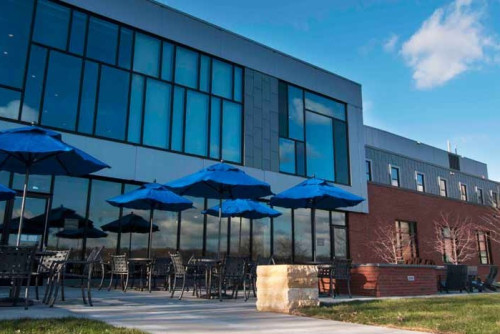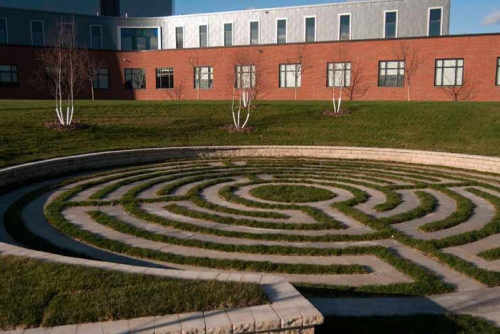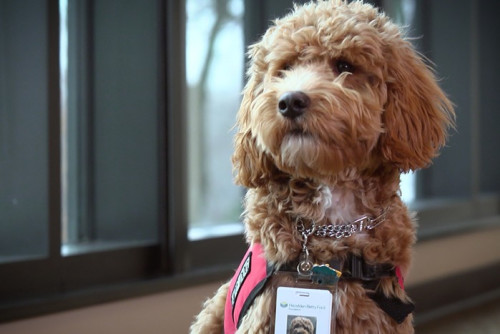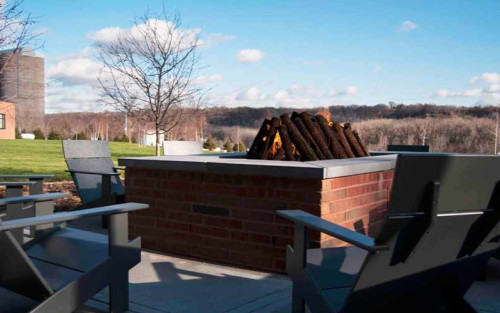






Hazelden Betty Ford St. Paul
Treatment Focus
This center treats substance use disorders and mental health conditions. You'll receive individualized care catered to your unique situation and diagnosis, learn practical skills for recovery, and make new connections in a restorative environment.
Primary Level of Care
Outpatient treatment offers flexible therapeutic and medical care without the need to stay overnight in a hospital or inpatient facility. Some centers off intensive outpatient program (IOP), which falls between inpatient care and traditional outpatient service.
Claimed
Recovery.com has connected directly with this treatment provider to validate the information in their profile.
Treatment Focus
This center treats substance use disorders and mental health conditions. You'll receive individualized care catered to your unique situation and diagnosis, learn practical skills for recovery, and make new connections in a restorative environment.
Primary Level of Care
Outpatient treatment offers flexible therapeutic and medical care without the need to stay overnight in a hospital or inpatient facility. Some centers off intensive outpatient program (IOP), which falls between inpatient care and traditional outpatient service.
Provider's Policy
When you call, our financial case managers will work with you and your insurance company to determine the best funding plan for you. In addition, our financial case managers will determine if patient aid is available to be used in combination with your insurance benefits.
Hazelden Betty Ford St. Paul
Hazelden Betty Ford St. Paul
About Hazelden Betty Ford St. Paul
The Hazelden Betty Ford treatment center in St. Paul, Minnesota is a place of healing where traditional recovery wisdom meets research-informed practices and approaches. They offer outpatient services with the option of living on campus. Hazelden Betty Ford St. Paul offers 3 levels of outpatient treatment for substance use, plus specialty programs. Their high-intensity outpatient program is the highest outpatient level of programming offered. Tailored to address each client's specific situation and challenges, high-intensity outpatient programming includes educational and therapeutic sessions designed to help clients build skills in the areas of coping, resilience, accountability, and initiative. Their weekday and weekend intensive outpatient programs meet during the morning or evening, allowing clients to manage work and family responsibilities while participating in drug rehab.
Special Programs And Personalized Care
Hazelden Betty Ford St. Paul has a special focus LGBTQIA+ program, addressing issues that can interfere with recovery. An opioids program caters to the specific challenges of opioid recovery and sobriety management. Betty Ford St. Paul treats addiction using a holistic approach. Therapy includes 1-on-1 counseling, with clients keeping the same therapist throughout their treatment program. Animal-assisted therapy, relapse prevention, 12-Step philosophy, and more provide greater opportunities for maintaining and strengthening recovery.
Central Location And Restorative Amenities
Conveniently located in the center of St. Paul, Minnesota, the Betty Ford facility offers comfortable, gender-specific accommodations. If choosing to live on campus, clients will share a room with 1 other person, with ample space, dual sinks, and personal dressers. On site, clients can enjoy a basketball court, labyrinth garden, gym, and plenty of green space for walking. The Betty Ford Foundation is recognized by multiple insurance providers for their leadership, best practices, research, support, and training in the addiction field, including residential and outpatient treatment.

Center Overview
Treatment Focus
This center treats substance use disorders and mental health conditions. You'll receive individualized care catered to your unique situation and diagnosis, learn practical skills for recovery, and make new connections in a restorative environment.
Joint Commission Accredited
The Joint Commission accreditation is a voluntary, objective process that evaluates and accredits healthcare organizations (like treatment centers) based on performance standards designed to improve quality and safety for patients. To be accredited means the treatment center has been found to meet the Commission's standards for quality and safety in patient care.
Insurance Accepted
Cash Pay Rates
Estimated Cash Pay Rate
Center pricing can vary based on program and length of stay. Contact the center for more information. Recovery.com strives for price transparency so you can make an informed decision.
Meet Your Care Team

Jon Hartman
Manager Addiction Program
MA, LADC

Joseph Caravella
Addiction Counselor
MA, LADC

Rhea Friederichs
Addiction Counselor
LADC

Wendy McMahon
Mental Health Professional
LMFT, LADC, CST
Levels of Care








Your Care Options
Specializations
Alcohol
Using alcohol as a coping mechanism, or drinking excessively throughout the week, signals an alcohol use disorder.
Co-Occurring Disorders
A person with multiple mental health diagnoses, such as addiction and depression, has co-occurring disorders also called dual diagnosis.
Drug Addiction
Drug addiction is the excessive and repetitive use of substances, despite harmful consequences to a person's life, health, and relationships.
Holistic
A non-medicinal, wellness-focused approach that aims to align the mind, body, and spirit for deep and lasting healing.
Who We Treat
LGBTQ+
Addiction and mental illnesses in the LGBTQ+ community must be treated with an affirming, safe, and relevant approach, which many centers provide.
Approaches
Evidence-Based
A combination of scientifically rooted therapies and treatments make up evidence-based care, defined by their measured and proven results.
Holistic
A non-medicinal, wellness-focused approach that aims to align the mind, body, and spirit for deep and lasting healing.
Minnesota Model
The Minnesota Model encourages abstinence and family-wide healing through the 12-Steps, group therapy, and individualized, psychological treatment.
Therapies
1-on-1 Counseling
Patient and therapist meet 1-on-1 to work through difficult emotions and behavioral challenges in a personal, private setting.
Animal Therapy
Animals can inspire trust and self-worth. In this experiential therapy, guided interactions are used to improve social skills and emotion regulation.
Family Therapy
Family therapy addresses group dynamics within a family system, with a focus on improving communication and interrupting unhealthy relationship patterns.
Life Skills
Teaching life skills like cooking, cleaning, clear communication, and even basic math provides a strong foundation for continued recovery.
Relapse Prevention Counseling
Relapse prevention counselors teach patients to recognize the signs of relapse and reduce their risk.
Twelve Step Facilitation
12-Step groups offer a framework for addiction recovery. Members commit to a higher power, recognize their issues, and support each other in the healing process.
Conditions We Treat
Anxiety
Anxiety is a common mental health condition that can include excessive worry, panic attacks, physical tension, and increased blood pressure.
Codependency
Codependency is a pattern of emotional dependence and controlling behavior. It's most common among people with addicted loved ones.
Depression
Symptoms of depression may include fatigue, a sense of numbness, and loss of interest in activities. This condition can range from mild to severe.
Eating Disorders
An eating disorder is a long-term pattern of unhealthy behavior relating to food. Most people with eating disorders have a distorted self-image.
Trauma
Some traumatic events are so disturbing that they cause long-term mental health problems. Those ongoing issues can also be referred to as "trauma."
Substances We Treat
Alcohol
Using alcohol as a coping mechanism, or drinking excessively throughout the week, signals an alcohol use disorder.
Benzodiazepines
Benzodiazepines are prescribed to treat anxiety and sleep issues. They are highly habit forming, and their abuse can cause mood changes and poor judgement.
Chronic Relapse
Consistent relapse occurs repeatedly, after partial recovery from addiction. This condition requires long-term treatment.
Co-Occurring Disorders
A person with multiple mental health diagnoses, such as addiction and depression, has co-occurring disorders also called dual diagnosis.
Cocaine
Cocaine is a stimulant with euphoric effects. Agitation, muscle ticks, psychosis, and heart issues are common symptoms of cocaine abuse.
Drug Addiction
Drug addiction is the excessive and repetitive use of substances, despite harmful consequences to a person's life, health, and relationships.
Heroin
Heroin is a highly addictive and illegal opioid. It can cause insomnia, collapsed veins, heart issues, and additional mental health issues.
Methamphetamine
Methamphetamine, or meth, increases energy, agitation, and paranoia. Long-term use can result in severe physical and mental health issues.
Languages
Aftercare
Care Designed for Your Needs
Personal Amenities
Amenities
Special Considerations
LGBTQ group
Group therapy unites LGBTQ+ patients in a safe and culturally competent setting, encouraging peer support under the expert leadership of a therapist.
Activities
What people are saying
Treatment
3.8
Accommodations
3.4
Food & Nutrition
3.3
Value
3.9
RHT
Reviewed 05/02/16
Review from Rehabs.com
Jennifer
Reviewed 06/20/16
Review from Rehabs.com
Anonymous
Reviewed 12/01/15
Review from Rehabs.com
Anonymous
Reviewed 06/20/16
Review from Rehabs.com
Anonymous
Reviewed 06/20/16
Review from Rehabs.com





